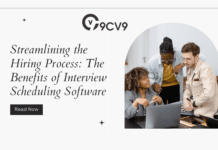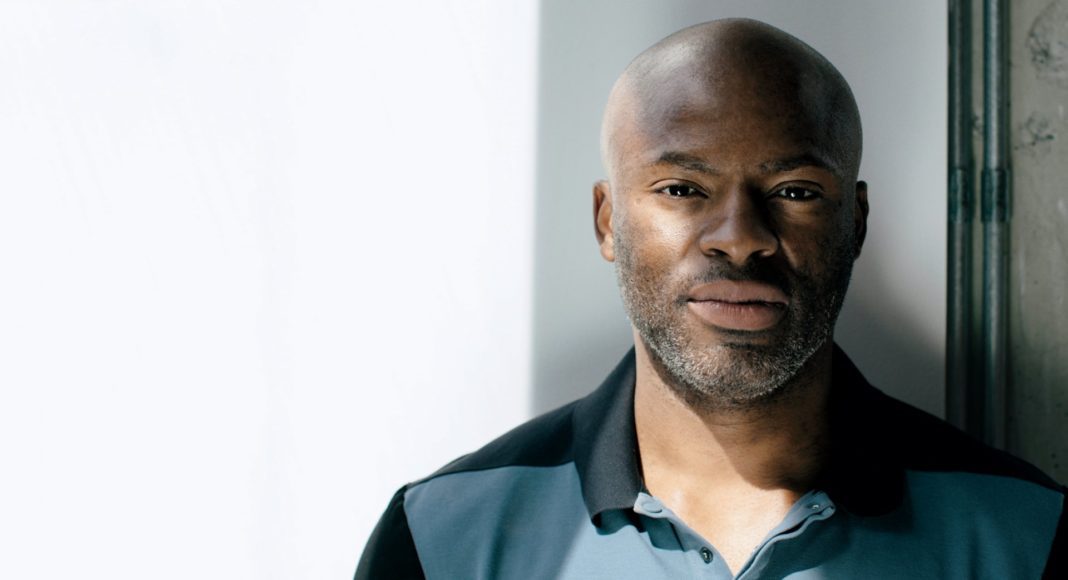Disclaimer: This piece first appeared in Inc here with some edits.
When Tope Awotona founded Atlanta-based online scheduling startup Calendly in 2013, he ran into a common problem for black founders: securing VC funds. The experience taught him to stretch every dollar so that he’d never have to rely on outside funding. He credits his family in Nigeria for showing him the way. — As told to Cameron Albert-Deitch, Inc
In Lagos, there’s huge wealth disparity. You see people who are incredibly wealthy–who ship their cars to Paris to get them serviced. You see people who maybe get one meal every two days. And for the most part, they live side by side.
It’s a city of amazing contrast. It’s crazy cramped. It once took me two hours to drive a mile. But people love that chaos.
My family lived in the suburbs. My maternal grandma built an import-export textile business that became very successful–she owned many homes and sent all her kids to college, despite not having a degree herself. My mom co-owned a small pharmacy with my aunt, in addition to holding down a day job at the central bank of Nigeria. My dad was a microbiologist who, one day, up and left his job at Unilever to forge his own path. He started many businesses–at one point, he was a distributor of industrial chemicals. My parents were my role models.

When I was 12, I watched my dad die in a carjacking. These guys followed him home and demanded the keys to his car. He threw the keys at them. And they shot him.
If that had happened in the United States, I would have gone through a lot of therapy. In Nigeria, it happened on Friday and I went to school on Monday. For six months, I couldn’t eat. I couldn’t sleep. That insomnia has carried on to my adult life. I’ll probably have it forever.
In February, I visited my dad’s gravesite. It was my first time going back there since he died. I felt like he didn’t get a chance to complete his work. There was a part of me, from a very early age, that wanted to redeem him.
In 1996, my family moved to Atlanta. It’s a big city like Lagos, and it also has crazy traffic. That’s where the similarities end. Lagos has an absolute absence of law, order, and structure. Lagosians don’t think any rules apply to them: If they see a line, they go around it, and rules are suggestions, more or less. Nigerians love that: “If I’m assertive and aggressive enough, I can get away with whatever I want.”
I raided my bank account and 401(k) to launch Calendly in 2013. Eventually, I ran out of money and started to seek VC funding. I had a working product, and customers using it, and everyone said no. Meanwhile, I watched other people who fit a different “profile” get money thrown at them for shitty ideas. Those VCs were ignorant and shortsighted. The only thing I could attribute it to was that I was black.
Many people would get upset about that, but I wanted to prove them wrong. I grew up in a country in which all the people in power looked a lot like me. A city in which you can will anything to happen.
The whole experience made me hate raising money. But it forced me to become resourceful, scrappy, and maniacally focused. I learned how to stretch each dollar.
Today, I’m very grateful. The business is approaching $30 million in recurring revenue, and growing more than 100 percent year-over-year. It’s been profitable since 2016. And I’m the majority owner.
According to Wired, Calendly was able to turn a profit with paying subscribers in 2016. By 2018, with a team of almost 200 employees working out of the company’s Atlanta headquarters, Calendly hit 1.3 million users. Calendly’s users doubled in 2019 and in June topped 5 million. Few of them knew that a Nigerian-American entrepreneur was behind the tool keeping clutter out of their inboxes.

According to Crunchbase, Calendly only went through a single funding round in 2014. Since then, the startup has been profitable enough and has not needed to raise another round.
Tope shared that being a foreigner really helped.
I grew up in a country where 99 percent of the people looked like me, so race wasn’t something I consciously thought about. It’s good to have that mentality. You can dwell on all the reasons you shouldn’t do something or why it’s harder for you.
Or you can just go out and do it.
This piece first appeared in Inc here with some edits.































![Writing A Good CV [6 Tips To Improve Your CV] 6 Tips To Improve Your CV](https://blog.9cv9.com/wp-content/uploads/2020/06/2020-06-02-2-100x70.png)


